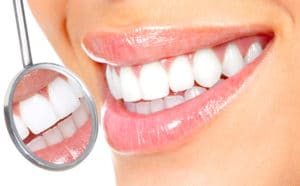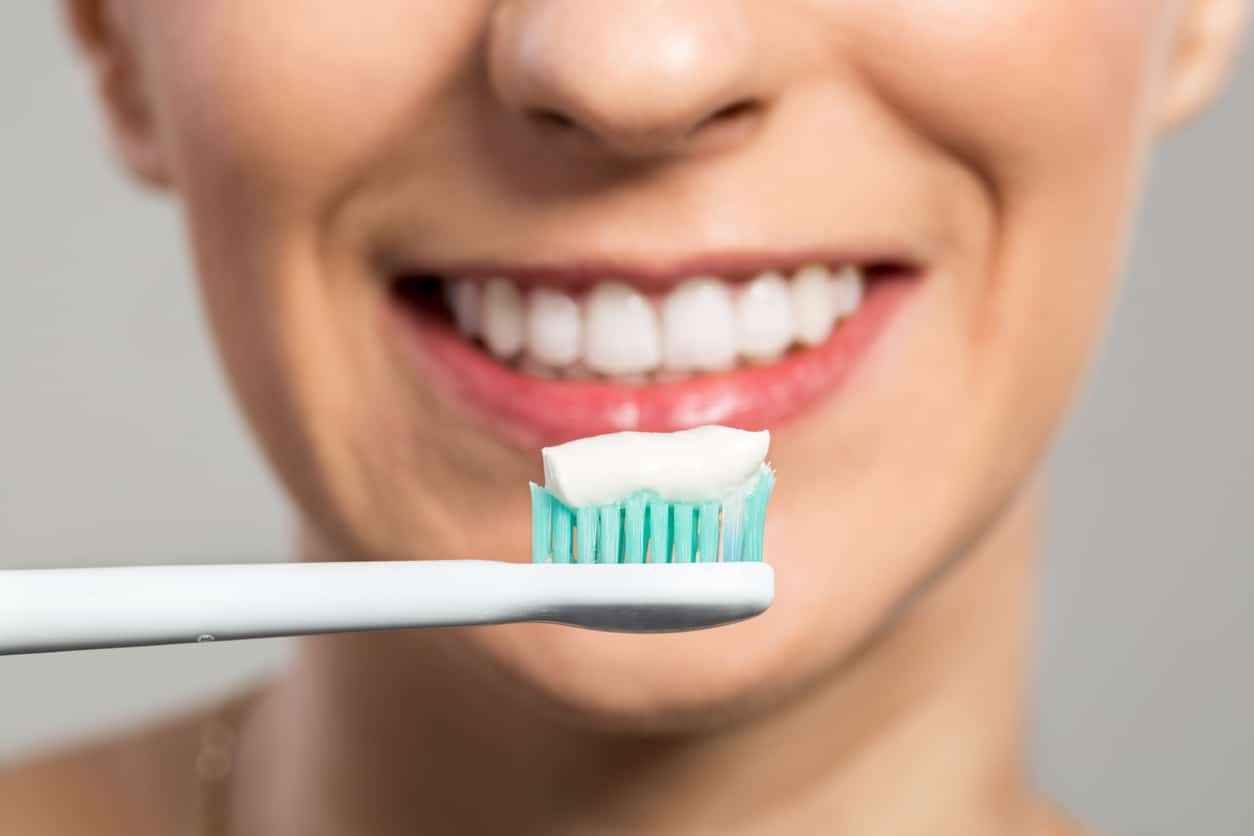Dental bonding is a special procedure used to restore, reshape and rejuvenate teeth, improving both their function and appearance. Dentists apply a thin layer of tooth-colored plastic to the front of the tooth and sculpt it to perfect the patient’s appearance. Dental bonding is used to repair chipped, cracked, broken, misshapen teeth or stained teeth or to fill in the spaces between teeth. It is also one way of addressing some of the gum recession.
What is Dental Bonding?
In dental bonding, Dr. Bidabadi uses dental resin to mask cosmetic imperfections with a tooth or teeth. The resin is applied, sculpted, and then cured. Bonding is very versatile and can solve a variety of cosmetic problems.
How is Bonding different from Porcelain Veneers?
While both dental bonding and the application of porcelain veneers have the same end goal — to cover cosmetic imperfections and create a perfect smile — they do it in different ways. Bonding uses composite resin that is sculpted on the teeth, cured, and then polished. Veneers are thin porcelain shells that are cemented onto the fronts of the teeth. To make room for the veneers, approximately 0.3 mm to 0.5 mm of the tooth enamel must be shaved off.

In use, porcelain veneers do not stain and are quite durable. The resin used in bonding is more resistant to staining than natural tooth enamel, but it can stain over time. Veneers last longer but are more expensive than bonding. Also, bonding is usually done in a single appointment, while veneers require two appointments.
How is bonding different from placing a filling or a crown on a tooth?
As mentioned above, bonding is only a cosmetic treatment to improve the appearance of a tooth. When we place a filling at Soft-Touch Dentistry, we use the same composite resin, but these are restorations. Fillings replace the tooth mass that we needed to remove to address the decay in a tooth, a cavity. Once we remove the decayed portion of the tooth, we then place a composite resin filling into the space. The great thing about composite resin/tooth-colored fillings is that once they are in place they are invisible in the tooth. This is a dramatic difference from old silver amalgam fillings.
A crown can be a restoration or a cosmetic improvement of a tooth. Dr. Bidabadi can place a crown onto a tooth that has heavy damage and is in danger of needing extraction. Unlike composite bonding, which is placed on the outside of the tooth, a crown fits over the entire visible portion of the tooth all the way down to the gum line. To make room for a crown, Dr. Bidabadi shaves off some of the healthy tooth surface on all sides and on top. The crown is then cemented onto the tooth. That tooth will need a crown on it for the rest of the patient’s life.
In addition to restoring strength to a tooth with damage, a crown can also be used for cosmetic reasons to cover a tooth with extensive deep staining, a tooth that is misshapen, or for other reasons. Crowns also are used as the anchors for dental bridges.
What kinds of problems can Bonding address?
Dental bonding can be used to treat:
- Discolored teeth that don’t respond to whitening
- Minor chips and cracks
- Uneven teeth
- Crooked teeth
- Gaps between teeth
It’s important to note that bonding is aesthetic in nature; it doesn’t solve underlying tooth issues such as decay. For a tooth to receive any bonding, it must be healthy.
Am I a good candidate for dental bonding?
Just about any adult with healthy teeth could benefit from bonding to cover imperfections. Bonding doesn’t solve underlying problems, but it is very versatile in masking cosmetic problems. Still, there are circumstances where a better solution could be a crown or maybe porcelain veneers. Dr. Bidabadi will discuss your options with you.

Does Cosmetic Bonding damage my teeth?
Unlike the application of porcelain veneers or a crown, Dr. Bidabadi doesn’t need to remove healthy tooth mass when preparing a tooth for cosmetic bonding. She lightly etches the tooth or teeth that will receive the bonding. This slightly roughs up the surface to create better adhesion of the composite resin. But this doesn’t remove any healthy tooth material and doesn’t damage the tooth or teeth.
Dental Bonding Material

The dental bonding material is made of a composite resin, or plastic, that hardens and fuses to the tooth when the dentist shines a special light on it. Once in place, the bonding material is shaped to correct the specific defect, colored to match the patient’s natural tooth and polished until it is smooth.
Is there anything I need to do to prepare for Dental Bonding?
No. When patients are in our Brighton or Newton offices for regular cleanings and exams, they may decide it’s a good time to also repair a chip or cover a discolored tooth. It’s easy to add bonding to their appointment. These are completely non-invasive treatments. Patients don’t even need local anesthesia.
The Dental Bonding Process
Applying bonding to a patient’s teeth requires a three-step process.
Step 1
An etching solution is applied to the tooth or teeth to prepare them to receive the bonding material. This solution gently roughens the surface of the tooth for a stronger bond between the tooth and the plastic.
Step 2
A thin layer of the bonding resin is placed on the surface of the tooth and is sealed in place using a special light. Several layers of resin may be added and hardened in turn. Each layer takes only a few minutes to harden.

Step 3
The bonding material is sculpted to the desired shape and colored to match the shade of the natural teeth. Finally, the bonding material is polished until it is entirely smooth.
The dental bonding procedure takes 1 to 2 hours, and its results may last for up to 10 years before any restoration is necessary.
Is there recovery after having Dental Bonding done?
There isn’t any recovery after these treatments with Dr. Bidabadi. As soon as you leave our offices, you can go right back to work or your normal activities. Because Dr. Bidabadi cures the composite resin as she applies each layer, the resin is completely hardened, and the tooth can be used immediately.
What do I have to do to take care of my Bonded Teeth?
Your bonded teeth require only normal good home hygiene practices, brushing for two minutes twice a day and flossing once daily. While resin is non-porous and resistant to staining, it can stain over time. You also need to consider that whitening does not really work on bonded teeth, so if your other teeth are whitened they may not match your bonded teeth.

How long will my Dental Bonding last?
How long your bonding treatment lasts depends in part on you. If you practice good hygiene and don’t chew ice and the like, your bonded teeth will continue to look great for up to a decade.
What People Say About Us!
Terrific – Friendly, Helpful, And Skilled
“My husband and I have been going to Dr. Bidabadi for over 10 years. She is the best! She will encourage you to take steps to improve both the health and appearance of your teeth, but is never overly aggressive or sales-y about either. Her staff is also terrific – friendly, helpful, and skilled. I hope that Dr. Bidabadi is in practice for many, many more years!”
– Courtney S., Boston, MA
Click here to read more reviews.
Schedule A Consultation with Dr. Bidabadi!
To learn more about Dental Bonding and other cosmetic treatments available at Soft-Touch Dentistry, visit our contact page and set up a consultation! You can also call 617.782.9250 to reach our Brighton office, or 617.332.8146 to reach our Newton office. Our practice serves the surrounding MA area, and we look forward to working with you!


